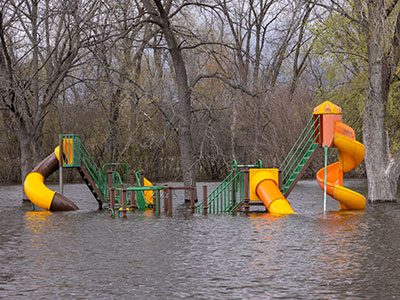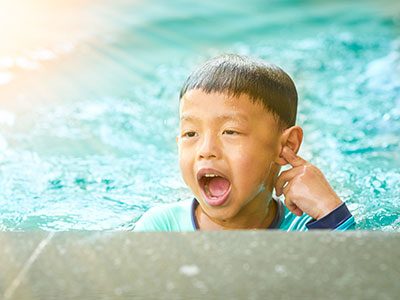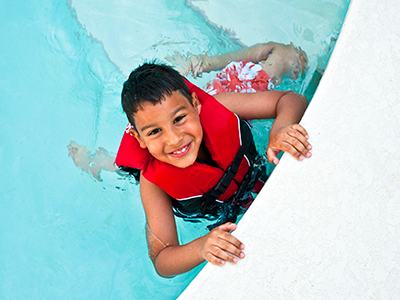Public pools, water parks, lakes and oceans can provide refreshing summer fun for kids, but they can also be sources of illness. Here’s what you need to know about swimming-related illnesses.
What are swimming-related illnesses?
Swimming-related illnesses, also known as recreational water illnesses, are diseases people can get from swallowing, breathing or having contact with water that is contaminated with bacteria or chemicals.
The most common types of swimming-related illnesses include:
- Gastrointestinal illness (such as diarrhea or vomiting)
- Skin illnesses (such as rash)
- Respiratory illness (such as cough or congestion)
These illnesses can be caused by germs that naturally live in the water and soil or are transmitted by humans who are sick when they are in the water. If the chemicals used to kill germs (chlorine or bromine) in pools, hot tubs and water playgrounds are not kept at the right levels, these germs can multiply and make swimmers sick.
Swimming in natural bodies of water, such as lake and rivers, near agricultural lands, also can lead to illness from pathogens from livestock animals, especially after episodes of major rainfall and flooding.
What are the symptoms of a swimming-related illness?
The most common symptoms of swimming-related illnesses are diarrhea, skin rashes, ear pain, cough or congestion and eye pain.
How are swimming-related illnesses spread?
You can get a swimming-related illness by swallowing, having contact with or breathing in aerosols from contaminated water.
Who is most at risk for swimming-related illnesses?
Young children (Less than 5 years of age), pregnant women and people who have health problems or take medicines that lower their body’s ability to fight germs and sickness are most at risk for swimming-related illnesses.
How can I prevent my child from getting a swimming-related illness?
The best way to prevent swimming-related illnesses from spreading is to keep germs out of the water in the first place. If your child has been sick with diarrhea in the past two weeks, do not let them go in the water. People typically have a small amount of feces on their bodies at any given time, which can wash into the water around them and contaminate it with germs. If someone else swallows the contaminated water, they can become infected.
Other ways to protect yourself from swimming-related illnesses and prevent their spread include:
- Keeping water out of your mouth when you swim
- Drying your ears after you swim
- Showering with soap before swimming
- Washing hands after using the toilet or changing diapers
- Regularly checking diapers on babies and toddlers
- Changing diapers in the bathroom and not beside the water or on the pool deck
- Avoiding swimming in natural bodies of water after periods of major rainfall and flooding
- Do not go swimming if you/your children are sick (especially if having diarrhea) or have open wounds
 https://riseandshine.childrensnational.org/wp-content/uploads/2025/09/parent-hugging-child-feature.jpg
300
400
Danielle Robbins
https://riseandshine.childrensnational.org/wp-content/uploads/2017/11/childrens_riseandshine_logo.jpg
Danielle Robbins2025-09-22 11:04:052025-09-22 11:04:05Reunited and it feels so good: Getting your family back together after disasters and emergencies
https://riseandshine.childrensnational.org/wp-content/uploads/2025/09/parent-hugging-child-feature.jpg
300
400
Danielle Robbins
https://riseandshine.childrensnational.org/wp-content/uploads/2017/11/childrens_riseandshine_logo.jpg
Danielle Robbins2025-09-22 11:04:052025-09-22 11:04:05Reunited and it feels so good: Getting your family back together after disasters and emergencies





















Leave a Comment
Want to join the discussion?Feel free to contribute!